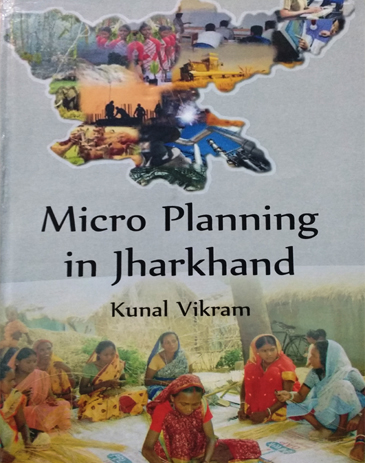Developing Jharkhand through the implementation of government poilicies & people's participation

Prof. Kunal Vikram
(Department of MBA, GGSESTC)
Book Title: Micro Planning in Jharkhand
Publication: Ayushman Publication House, New Delhi
ISBN: 978-93-5234-025-5
Preface: While planning is the use of collective intelligence and foresight to chart direction, order, harmony, and progress in public activity relating to the human environment and general welfare, at the same time, development planning aims at breaking the barriers to economic and social change, seeks co-ordination of policies in order to attain or speed up development and thus involves policy interventions to accomplish economic, social and institutional reforms as well as economic growth.
But in the formulation and implementation of developmental plans, objectives and techniques must be subordinated to social policy and planning system should be considered to be a structure formed by values, goals, roles, factors, organization and their clients, rules, norms, regulations, the relationship between individual and collective participants of planning.
The success of administrative levels to co-ordinate the policies as well as direct and active participation of the people at large in the formulation as well as implementation of the plan. "Planning then involves a growing number of people not only through the implementation of government policies and their public discussion ... but also through people's participation in institutions beneath the government level.

Introduction: 'This clearly indicates that for the participation of people at large in the planning exercises of all the territorial levels, the primary purpose of planning would be the creation of functionallity efficient communities' which is possible only by adopting the regional or spatial planning approach.
In the developement policies of the backword but developing economies like India, the issue of social equity and balanced spatial development has, now, come to the forefront for which greater emphasis is being laid on regional approach to planning as against the macro-economic sectoral approach because regional planning, in its true perspective, approach because regional responsive to the emerging socio-economic problems is a spatial development planning which tends to utilize the resources natural, human and other—to the fullest extent and so distribute the fruits of development among the regions and groups within the region which can minimize the socio-economic imbalances and improve the living conditions of the masses in other words, regional development planning is concerned with the ordering of human activities for socio-economic transformation in supra-local space in an agriculture based backward rural economy as against supra-urban space for an urban dominated economy.